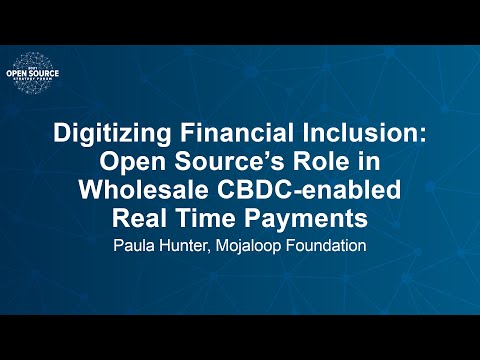Description:
Explore the role of open source in enabling wholesale CBDC-powered real-time payments for financial inclusion. Delve into how COVID-19 and contactless payments have influenced central banks' consideration of wholesale CBDC to reduce international payment settlement costs. Examine the potential of wholesale CBDC, integrated with open source real-time payment systems, to foster financial innovation, expand payment capabilities, and increase platform competition. Investigate strategies for advancing open source real-time payment system design to incorporate wholesale CBDC, aiming to serve the unbanked and benefit the broader economy. Learn about the Mojaloop Foundation's efforts, including CBDC hackathons, pilot projects, and community initiatives, to promote inclusive payment systems and interoperability. Gain insights into the global landscape of CBDC initiatives and their potential to reduce reliance on traditional banking systems.

Digitizing Financial Inclusion: Open Source's Role in Wholesale CBDC-enabled Real Time Payments
Add to list